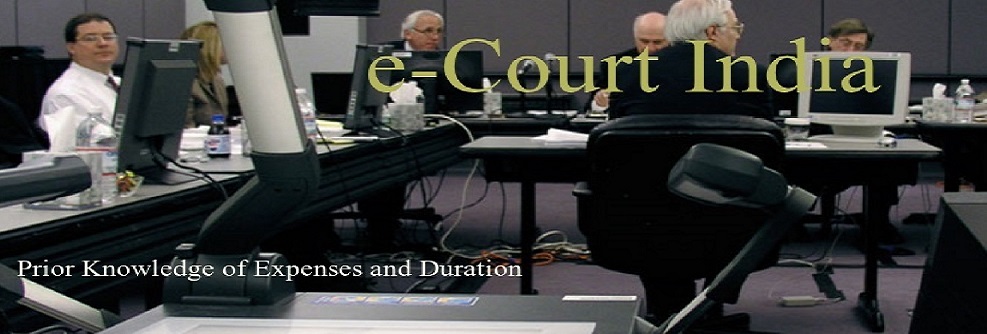On-line Arbitration, as the name suggests, is a mixture of conventional Arbitration with the addition of technology. Conventional Arbitration, i.e. arbitration other than on-line arbitration, requires application of Arbitration & Conciliation Act, 1996 while in the case of On-line Arbitration, assistance of technological related laws, particularly the Information Technology Act, 2000 is also required.
Facts
Sections 4 and 5 of Information Technology Act read with Sec 65-B of the Evidence Act provide legal recognition to electronic records and signatures.
The Arbitration & Conciliation Act, 1996, if considered from the point of view of On-line Arbitration, can be divided into three parts.
1. The arbitration agreement,
2. The arbitral proceedings and
3. The arbitral award and its enforcement.
Viewing the provisions of Arbitration & Conciliation Act, 1996 (Act) in conjunction with Information Technology Act, I take you to the first segment, i.e. the Arbitration Agreement.
Arbitration Agreement
Hon’ble Supreme Court in the matters of Shakti Bhog1 and Trimax2 have upheld the validity of arbitration agreement entered into by exchange of emails though no formal agreement in writing signed by the parties had come into existence.
In either of the situations, i.e. whether On-line or Off-line Arbitration, parties or the Institutions should clearly spell out: the law governing the contract, the law governing the arbitration agreement, the procedural law, the jurisdiction of courts (whether exclusive/ non exclusive), applicability of Part I of the Act, language of the proceedings, the place of arbitration and other procedural details
In addition, being an On-line Arbitration, the procedures relating to use of technology have to be either agreed by the parties or laid down by the Institutions.
The Institutions acquire further importance as they are in a better position than the individual parties to clearly lay down the details which are required in an On-line Arbitration so that parties who follow the rules of a particular Institution are not faced with any additional difficulties.It is particularly important to spell out these details because On-line Arbitration, unlike Conventional Arbitration, is not by physical meeting of parties and arbitrators but is a virtual meeting. Extra caution needs to be taken and minute details need to be put into the rules and procedures keeping this aspect in view.Since arbitration proceedings are meant to be confidential in nature, the infrastructure that is agreed to be used by the parties should not only provide confidentiality of data but should also be reliable.
Arbitral Proceedings
Moving on to the second part, i.e. the arbitral proceedings which are virtual in nature, it is seen that the procedure which would be adopted by the parties would already have been spelt out in the agreement or the Institutional rules followed by the parties. In addition, the Statement of Claim and defense etc. which need to be sent by transmitting the physical copies can be transmitted in electronic form. They can be sent through emails by attaching PDF files and in addition, signed copies can be later sent though courier. Again, Section 4 and 5 of the Information Technology Act, read with Section 65B of the Evidence Act come to the aid of the parties. Such pleadings can be transmitted in electronic form without losing recognition of law.
It may however be added that in the conduct of proceedings, there could be difficulties such as link failure, system failure, electricity failure etc. which need to be taken care of in the agreement or the Institutional rules so that either a back-up or an alternate provision is made and information/ data fed in the system can be retrieved.
ICC has taken a lead and framed certain Standards for On-line Arbitration. Some of them are: the rules for giving file names with a unique name/identifier for each electronic document.
* To identify the originator,
* Class of document
* Place of arbitration This file naming system shall be used throughout the arbitration for all electronic documents.
The file name and the date of the original document (e.g. the date shown on a letter that is submitted as evidence) shall appear on the first page of the electronic document, either at the top right corner or at the bottom. If data loss occurs and the affected participant cannot itself reconstitute the lost electronic documents, the other participants shall help to reconstitute the electronic file(s) by providing copies of the pertinent files that they control. Mode of transmission and storage of emails Whether any confirmation of receipt of email has to be given. File format for sending attachments, like. PDF, Doc, HTML, ASCII Rules for audio and video conferencing The arbitral tribunal, in consultation with the parties, will issue directions giving details for the conference, such as:
(i) day and hour and applicable time zone;
(ii) places where a conference front-end is required;
(iii) who shall participate and number of persons at each front-end;
(iv) special requirements, such as visualization of documents;
(v) any other requirements.
Apart from ICC, even WIPO is successfully carrying out dispute resolution electronically for domain name and other disputes.
Other Institutions should take initiative in establishing rules for On-line Arbitration.
The procedural requirements of having the virtual proceedings have to be clearly spelt out including the details for exchange of pleadings, video conferencing and audio conferencing.
At this place, a word of caution may be added. In certain circumstances, parties and the arbitrators may be placed at different ends of the system in different geographical areas. Various permutations and combinations may arise, for example, a party may be sitting with an arbitrator at one end while the two arbitrators may be sitting at the second end and the other party may be sitting at the third end. This may lead to allegations of non compliance of Sec 12 and 18 of the Arbitration & Conciliation Act, 1996. Rules for holding proceedings should be formulated in such a manner that in holding of virtual proceedings equality and impartiality to the parties is ensured.
It is a known fact that courts have already recognized appearance of accused and also cross examinations through video conferencing not only in England and Wales but also India.
The discussion amongst the arbitrators and the final signing of the proceedings can be ensured by exchange of drafts through emails, which, as already stated above, provide a valid record for future reference and are acceptable under the law.
Arbitral Award and its Enforcement
Coming to the third part, i.e. arbitral award and its enforcement, Section 31 of the Arbitration & Conciliation Act requires the award to be in writing and signed by the arbitrators. The award can be issued though email by sending scanned signed copies in PDF format. The actual signed copies can be sent through post.
Alternately, the arbitrators can affix digital signatures and provide authenticity and integrity to the award. For enforcement of the award, the original signed copy received by post or the digitally signed awards, as the case may be, can be filed before the courts.
New York and Geneva Conventions requires filing of original or duly authenticated copy of the award for enforcement. As per the functional equivalent approach promoted by Model Law of electronic Commerce3, electronic documents can be considered original for enforcement.
Conclusion
We have seen that On-line Arbitration is in no way different from what the conventional arbitration is. The only difference is the omission of physical platform and introduction of a virtual platform. In other words, the legal impediments which exist in conventional arbitration will continue to exist even in On-line Arbitration.
Parties appoint arbitral tribunal to resolve the existing disputes and not to add further disputes on account of introduction of technology. The technological obstacles that are likely to arise may be obviated by the Parties themselves by providing the above referred details in the agreement or by accepting the rules laid down by the Institutions for On-line arbitration.In effect, the problems and obstacles caused by the introduction of technology are not insurmountable but are only teething problems which can be overcome with the passage of time.
Legal issues
In an On-line Arbitration, there is a likely hood of some of the following legal issues arising:
In an arbitration consisting of a panel of three arbitrators, when one arbitrator is in India while the other two are outside India:
1. What would be the proper law of the arbitration agreement and the crucial law?
2. What would be considered to be the seat of arbitration?
3. On the award being signed, whether the award can be termed as domestic of foreign award?
4. Whether Sec 34 or Sec 48 would be applicable for raising objections against the award?
5. Whether it would be enforceable under Part I or Part II of the Act.
The above list is not exhaustive. By formulating the procedures, some of the problems can be sorted out. Rest of the issues shall be best decided by the courts.

















